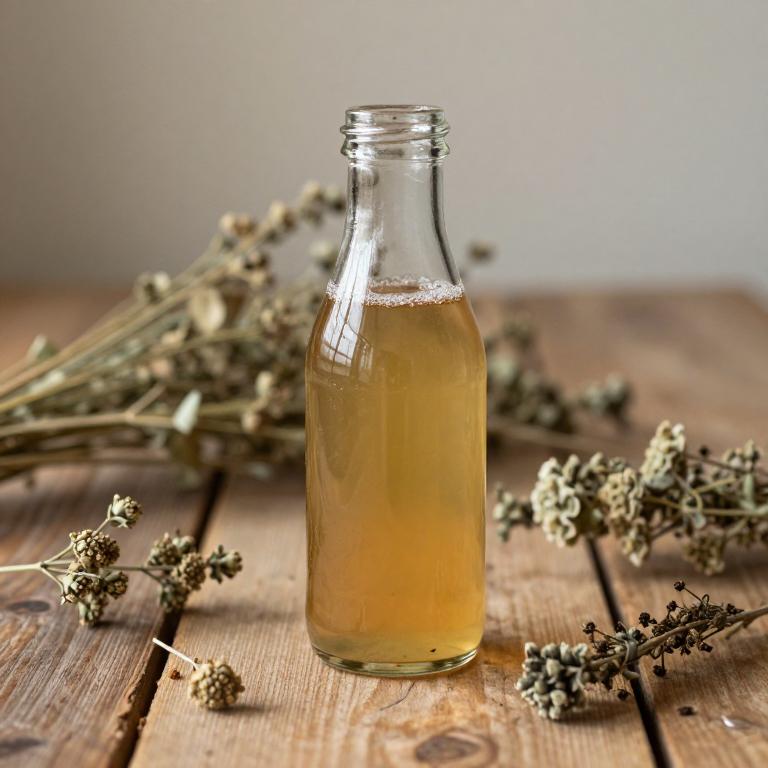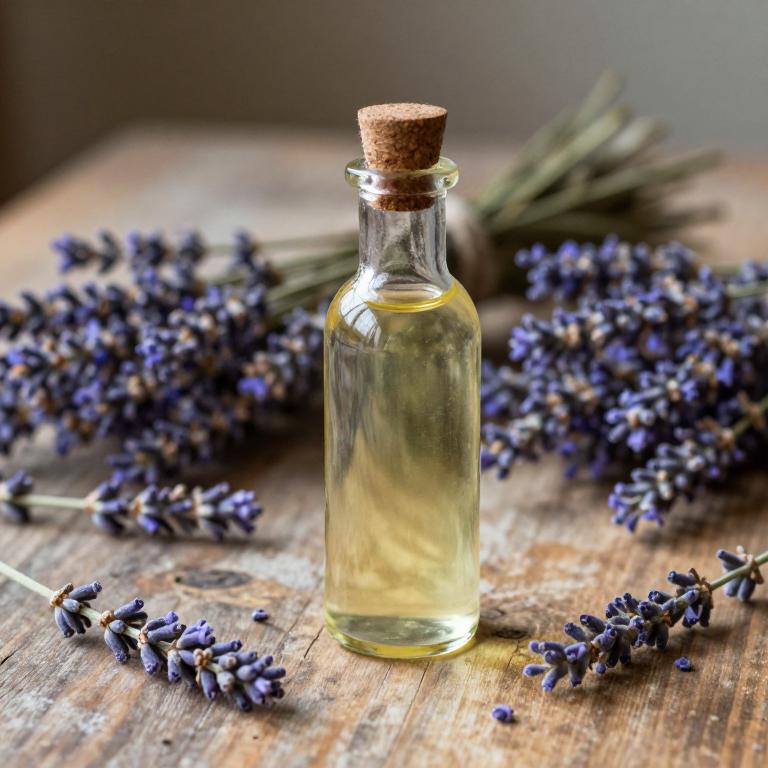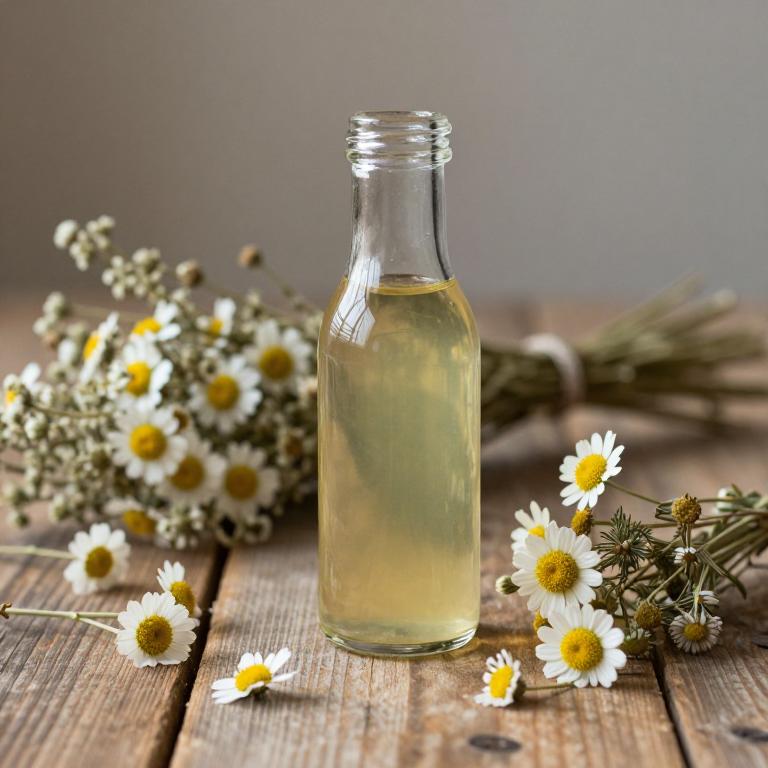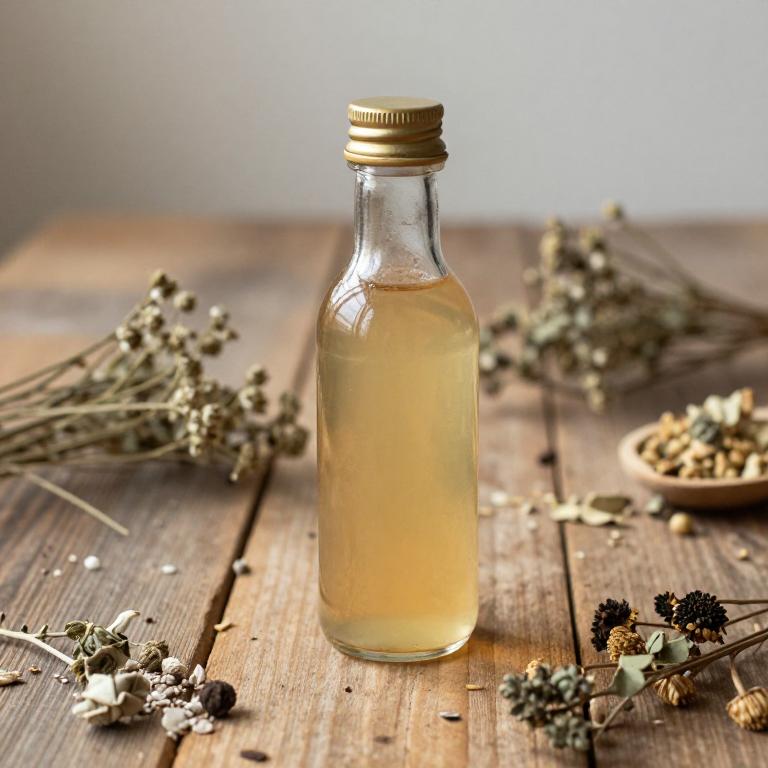10 Best Herbal Juices For Oily Hair

Herbal juices are natural remedies that can help balance oil production in oily hair by nourishing the scalp and regulating sebum glands.
Ingredients like aloe vera, nettle, and chamomile are commonly used for their soothing and detoxifying properties. These juices can be applied directly to the scalp or diluted with water to create a refreshing rinse after shampooing. Regular use may reduce excess oiliness and promote a healthier, more balanced scalp environment.
Overall, herbal juices offer a gentle, chemical-free alternative for those seeking to manage oily hair naturally.
Table of Contents
- 1. Aloe vera (Aloe barbadensis)
- 2. Stinging nettle (Urtica dioica)
- 3. Field horsetail (Equisetum arvense)
- 4. Rosemary (Rosmarinus officinalis)
- 5. St. john's wort (Hypericum perforatum)
- 6. English lavender (Lavandula angustifolia)
- 7. Salvia (Salvia officinalis)
- 8. German chamomile (Chamomilla recutita)
- 9. Centella (Centella asiatica)
- 10. Dog rose (Rosa canina)
1. Aloe vera (Aloe barbadensis)

Aloe barbadensis, commonly known as aloe vera, is a popular herbal ingredient used in natural hair care products, particularly for those with oily hair.
Its gel contains essential nutrients like vitamins, enzymes, and minerals that help balance scalp health and reduce excess sebum production. Aloe vera juice can be applied directly to the scalp or mixed with other herbal extracts to create a nourishing and clarifying hair tonic. It has soothing properties that can calm an overactive scalp and prevent irritation caused by frequent washing or harsh chemicals.
Regular use of aloe barbadensis herbal juice can lead to healthier, more manageable hair while maintaining a natural shine and reducing greasiness.
2. Stinging nettle (Urtica dioica)

Urtica dioica, commonly known as stinging nettle, is a powerful herb that has been used for centuries for its various health benefits, including its potential to improve hair health.
When used in the form of herbal juices, stinging nettle can help cleanse the scalp and regulate sebum production, making it particularly beneficial for individuals with oily hair. The juice is rich in minerals like iron, silica, and potassium, which can strengthen hair follicles and promote a balanced scalp environment. Regular application of stinging nettle juice can reduce excess oiliness and prevent dandruff, leading to healthier, more manageable hair.
However, it is important to dilute the juice properly to avoid skin irritation, as the plant's natural sting can cause discomfort if not prepared correctly.
3. Field horsetail (Equisetum arvense)

Equisetum arvense, commonly known as field horsetail, is a powerful herbal remedy often used in natural hair care for its high silica content, which strengthens hair follicles and promotes healthy growth.
When prepared as a herbal juice, it can be particularly beneficial for individuals with oily hair, as it helps regulate sebum production and reduce excess oiliness without stripping the scalp of its natural oils. The astringent properties of horsetail juice can also help tighten the scalp and improve overall hair texture, making it an excellent addition to a cleansing routine. However, it is important to use it in moderation and dilute it properly to avoid irritation, especially for those with sensitive scalps.
Overall, Equisetum arvense herbal juice offers a natural and effective way to manage oily hair while promoting long-term scalp health.
4. Rosemary (Rosmarinus officinalis)

Rosmarinus officinalis, commonly known as rosemary, is a versatile herb that has been traditionally used for its beneficial properties in hair care, particularly for those with oily hair.
Rosemary herbal juices are rich in antioxidants, anti-inflammatory compounds, and essential oils that help balance oil production and improve scalp health. When applied to oily hair, these juices can help reduce excess sebum without stripping the hair of its natural moisture. The aromatic compounds in rosemary also promote circulation, which can strengthen hair follicles and encourage healthier growth.
Regular use of rosemary herbal juice can lead to visibly healthier, less greasy hair with increased shine and vitality.
5. St. john's wort (Hypericum perforatum)

Hypericum perforatum, commonly known as St. John’s Wort, is a herbal plant that has been traditionally used for its potential benefits on hair health, particularly for individuals with oily hair.
When used in the form of herbal juices, it is believed to help balance sebum production, reducing excess oiliness at the roots while promoting a healthier scalp environment. The active compounds in St. John’s Wort, such as hypericin and flavonoids, may have anti-inflammatory and antimicrobial properties that can soothe scalp irritation and prevent dandruff. However, it is important to note that hypericum perforatum can interact with certain medications, so consulting a healthcare professional before use is advisable.
When incorporated into a regular hair care routine, St. John’s Wort herbal juice may offer a natural alternative for managing oily hair and improving overall scalp health.
6. English lavender (Lavandula angustifolia)

Lavandula angustifolia, commonly known as English lavender, is often used in herbal juices for oily hair due to its natural antibacterial and anti-inflammatory properties.
These properties help to reduce excess sebum production, which is a common cause of oily hair and scalp conditions. When incorporated into herbal juices, lavender can help balance the scalp's natural oils and promote a healthier hair environment. Its soothing aroma also provides a calming effect, making it a popular choice in natural hair care routines.
Regular use of lavender-based herbal juices can lead to reduced oiliness, improved scalp health, and overall better hair manageability.
7. Salvia (Salvia officinalis)

Salvia officinalis, commonly known as sage, is a versatile herb that has been used for centuries in traditional medicine and herbal remedies.
When used in the form of herbal juices, sage can be beneficial for those with oily hair due to its astringent properties that help reduce excess sebum production. The natural compounds in sage juice, such as rosmarinic acid and flavonoids, may help balance oiliness and promote a healthier scalp environment. Regular application of sage herbal juice as a scalp tonic or rinse can help control oiliness and improve overall hair health.
However, it is important to dilute the juice properly and perform a patch test to avoid any potential irritation or allergic reactions.
8. German chamomile (Chamomilla recutita)

Chamomilla recutita, commonly known as German chamomile, is a popular herbal ingredient used in natural hair care products, particularly for those with oily hair.
Its essential oils and extracts are known for their calming and anti-inflammatory properties, which can help soothe an overactive scalp and reduce excess sebum production. Chamomile-based herbal juices can help balance oiliness by gently cleansing the scalp without stripping away natural moisture. These juices also have a mild antiseptic effect, which can prevent scalp infections and promote a healthier environment for hair growth.
Regular use of chamomilla recutita herbal juices can lead to shinier, more manageable hair while maintaining a balanced scalp condition.
9. Centella (Centella asiatica)

Centella asiatica, also known as gotu kola, is a traditional herb widely used in natural hair care for its beneficial properties, especially for individuals with oily hair.
Its herbal juices are rich in antioxidants, anti-inflammatory compounds, and nutrients that help regulate sebum production, reducing excess oiliness at the scalp. Regular use of centella asiatica juice can help balance the scalp's natural oils, preventing dandruff and promoting a healthier hair environment. The herb is also known to strengthen hair follicles and improve overall hair texture, making it a valuable addition to oily hair routines.
When incorporated into hair masks or rinses, centella asiatica herbal juices offer a natural, effective way to manage oiliness and enhance hair health.
10. Dog rose (Rosa canina)

Rosa canina, also known as dog rose, is a herbal remedy that has been traditionally used for its nourishing and balancing properties, making it particularly beneficial for oily hair.
The juice extracted from the Rosa canina fruit is rich in vitamins, antioxidants, and essential nutrients that help regulate sebum production, which is crucial for managing oiliness in the scalp. When used as a hair rinse or incorporated into hair care routines, Rosa canina juice can help reduce excess oil without stripping the hair of its natural moisture. Its mild astringent properties help to cleanse the scalp gently, promoting a healthier environment for hair growth.
Overall, Rosa canina herbal juice offers a natural and effective solution for those seeking to balance oiliness and improve the overall health of their hair.